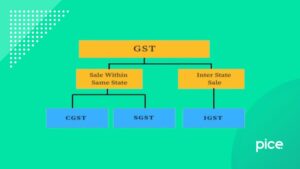Understanding GSTR 3B Rule 61
- 22 Aug 24
- 9 mins

Understanding GSTR 3B Rule 61
Key Takeaway
- Form GSTR-3B is a crucial monthly or quarterly return form for registered persons to declare outward supplies, input tax credit, and tax liability under GST.
- Rule 61 outlines the procedures for filing GSTR-3B, emphasizing the accurate reporting of outward supplies and input tax credit.
- Recent changes to Rule 61 include the option for certain taxpayers to file on a quarterly basis, reducing the compliance burden.
- Compliance with Rule 61 requires timely filing and proper utilization of the electronic credit ledger and electronic cash ledger.
- Ensuring accurate and timely filing of Form GSTR-3B is essential to avoid penalties and maintain GST compliance.
What is GSTR 3B?
Form GSTR-3 is a simplified return form introduced by the Goods and Services Tax (GST) regime in India for registered persons to file their summary returns and make tax payments. This form must be filed monthly by all taxpayers until the GST Council specifies otherwise. The form includes details of outward supplies, input tax credit, tax liability, and payments.
Registered persons must ensure accurate reporting of their outward supplies and claim the correct amount of input tax credit in Form GSTR-3. This form is essential for maintaining compliance with GST regulations and avoiding penalties.
Form GSTR-3B requires registered person to declare their total turnover, outward supplies, and inward supplies on which tax is payable under reverse charge. The form also mandates the reporting of input tax credit available, input tax credit reversed, and the net input tax credit utilized. The electronic credit ledger reflects the input tax credit that registered persons can utilize against their tax liability.
In addition to Form GSTR-3, registered person are also required to file Form GSTR-1, which provides details of outward supplies, and Form GSTR-2, which captures inward supplies. These forms are crucial for the accurate reconciliation of data and claiming input tax credit.
What is Rule 61 in GST?

Recent changes to Rule 61 have impacted how registered persons file their returns and claim input tax credit. These changes aim to streamline the filing process and enhance compliance. Registered persons must stay informed about these changes to ensure accurate and timely filing of Form GSTR-3B.
The rule also highlights the importance of the electronic credit ledger and the electronic cash ledger. These ledgers track the input tax credit available to registered persons and the payments made towards their tax liability. Understanding how to utilize these ledgers effectively is crucial for maintaining compliance and optimizing tax benefits.
Overall, Rule 61 is a fundamental part of the GST framework that governs the filing of returns and payment of taxes. Registered persons must adhere to the requirements outlined in this rule to ensure compliance and avoid penalties.
Recent Changes to Rule 61
Recent changes to Rule 61 have introduced new provisions and requirements for filing Form GSTR-3. These changes aim to simplify the filing process and enhance compliance. Registered persons must stay updated with these changes to ensure accurate and timely filing of their returns.
One significant change is the introduction of a quarterly basis for filing Form GSTR-3 for certain categories of taxpayers. This change allows eligible registered persons to file their returns on a quarterly basis instead of monthly. This modification aims to reduce the compliance burden on small and medium-sized businesses.
Additionally, the recent changes have emphasized the importance of reporting outward supplies and input tax credit accurately. Registered persons must ensure that their Form GSTR-3 reflects the correct details of their outward supplies and input tax credit to avoid discrepancies and penalties.
The changes also highlight the significance of the electronic credit ledger and the electronic cash ledger. Registered persons must understand how to utilize these ledgers effectively to optimize their tax benefits and maintain compliance.
Impact of Changes on Different Types of Taxpayers
The recent changes to Rule 61 have different impacts on various categories of taxpayers. Registered persons must understand how these changes affect their filing requirements and tax compliance.

Composition scheme taxpayers, who file their returns on a quarterly basis, benefit from the recent changes that allow them to continue this filing frequency. This change reduces the compliance burden on small businesses and helps them manage their tax obligations more efficiently.
💡If you want to pay your GST with Credit Card, then download Pice Business Payment App. Pice is the one stop app for all paying all your business expenses.
Taxpayers with nil GST returns also benefit from the simplified filing process introduced by the recent changes. These taxpayers can now file their returns more efficiently, ensuring compliance with GST regulations.
Overall, the recent changes to Rule 61 impact different categories of taxpayers in various ways. Registered persons must stay informed about these changes to ensure accurate and timely filing of Form GSTR-3B and maintain compliance with GST regulations.
How Rule 61 Impacts GSTR 3B Filing
Rule 61 significantly impacts the filing of Form GSTR-3B by outlining the procedure and requirements for registered persons. This rule ensures that taxpayers correctly declare their outward supplies, input tax credit, and tax liability in their returns.
One of the key aspects of Rule 61 is the requirement for registered persons to file their returns on a monthly or quarterly basis, depending on their eligibility. This rule aims to streamline the filing process and enhance compliance by providing clear guidelines for taxpayers.
The rule also emphasizes the importance of accurate reporting of outward supplies and input tax credit. Registered persons must ensure that their Form GSTR-3B reflects the correct details to avoid discrepancies and penalties. The electronic credit ledger plays a crucial role in tracking the input tax credit available to registered persons, while the electronic cash ledger tracks the payments made towards their liability towards tax.
Additionally, Rule 61 highlights the importance of timely filing of returns. Registered persons must adhere to the specified time limit for filing their returns to avoid penalties and maintain compliance.
Ensuring Compliance with Rule 61
Ensuring compliance with Rule 61 is essential for registered persons to maintain accurate and timely filing of Form GSTR-3B. Compliance with this rule involves understanding the requirements for declaring outward supplies, input tax credit, and tax liability in the returns.
Registered persons must stay informed about the recent changes to Rule 61 and their impact on the filing process. This includes understanding the new provisions for filing on a quarterly basis and the importance of accurate reporting of outward supplies and input tax credit.
One of the key aspects of compliance is utilizing the electronic credit ledger and the electronic cash ledger effectively. Registered persons must ensure that their returns reflect the correct details of their input tax credit and payments made towards their tax liability.
Additionally, registered persons must adhere to the specified time limit for filing their returns to avoid penalties. Timely filing of Form GSTR-3B is crucial for maintaining compliance with GST regulations.
In conclusion, ensuring compliance with Rule 61 involves understanding the requirements for filing Form GSTR-3B and staying informed about recent changes. Registered persons must ensure accurate and timely filing of their returns to maintain compliance and avoid penalties.
FAQs
What are the terms of Form GSTR-3B filing?
How does Form GSTR-1 differ from Form GSTR-3B?
What is the tax period for filing GSTR-3B?
What is the procedure for the filing of return under Rule 61?
1. Prepare the necessary documents and information.
2. Access the GST portal.
3. Fill out Form GSTR-3B with details of outward supplies, input tax credit, and tax liability.
4. Submit the form and make the necessary payments. Compliance with these steps ensures accurate and timely filing.




















